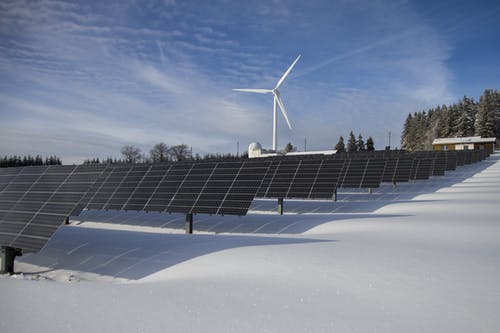The Voice could advise on how to address natural disasters like bushfires
- Written by Claire Hooker, Senior Lecturer and Coordinator, Health and Medical Humanities, University of Sydney

After three wet years, bushfire season has begun again. We have been warned[1] this season could be a bad one.
With the last few years of epic rain, more fuel has grown to burn in what is predicted to be a hot, dry summer. Disaster events like bushfires are predicted to increase in both frequency and severity as the climate changes. Disasters will cascade and overlap – there may be no time to recover between one disaster and the next.
The Voice to Parliament has the potential to be an effective way to adapt to this riskier future. It will enable Aboriginal communities to better undertake the urgent tasks of planning and disaster preparation.
Importantly, all Australians could benefit from the Voice advising on strategies for how Australia can prepare for, and survive, disasters.
Read more: The Voice to Parliament explained[2]
First Nations people know how to adapt to changing climates
First Nations people around the world have experience in successfully adapting[3] to changing climates[4], reaching back tens of thousands of years.
Some Australians are already turning to Aboriginal and Torres Strait Islander knowledge of Country to prepare for, mitigate, respond to, and recover from the impacts of natural hazards. First Nations strategies – from “cool burn” bushfire hazard reduction such as the world leading Fire to Flourish[5] program, to waterway management[6] – can prevent disasters, or reduce their scale.
There’s also the example of Northern Australia’s satellite bushfire management program[7] developed in collaboration with Traditional Owners.
The Voice has the potential to provide the means for the Australian government to learn from this expertise. This could enable all Australians to see and benefit from the extraordinary strengths in Aboriginal and Torres Strait Islander communities.
Natural disasters require community-supported responses
Australia’s National Principles for Disaster Recovery emphasise[8] that disaster management must be community-based.
Disaster management is not effective when government disaster responses do not consider local knowledge[9]. The effect is often worsened when these responses also lack understanding of Aboriginal and Torres Strait Islander cultures and ways of working[10].
One example of this was during the Lismore floods[11]. Local Indigenous communities argued that a failure to include Aboriginal knowledge in the planning and response to the floods resulted in residents being left stranded on rooftops[12] and surviving without water and electricity for days. Communities have since called[13] for more Aboriginal and Torres Strait Islander first responders.
Disaster events in Australia can impact[14] Indigenous people disproportionately[15]. Poor housing, lack of access to resources and a higher prevalence of ill health render First Nations peoples more likely to be negatively impacted by heatwaves, floods and fires. This also means fewer resources and infrastructure to help these communities recover from these disasters after they occur.
Lack of external support has often led to First Nations communities leading disaster response for themselves. In Lismore, support and help for Aboriginal and Torres Strait Islander families came from the Aboriginal and Torres Strait Islander community itself. Despite significant flood damage to their building, The Koori Mail[16] – a Lismore-produced local newspaper – organised food, material needs and social support to the local Koori (Aboriginal) community.
Larrakia, Tiwi, Yolŋu and Desert people in the Northern Territory have similar stories of working together. In the past they have coordinated[17] with friends and family to care for the young, sick and elderly in emergency events such as cyclones and bushfires.
Read more: Disastrous floods in WA – why were we not prepared?[18]
All Australians need to learn from Aboriginal and Torres Strait Islander disaster management
In every disaster there are calls to “build back better”[19] – that is, to reimagine how we live and how we can live well together. First Nations communities globally do this work every day. Although First Nations people are only around 6% of the world’s population, their respective lands house 80% of the world’s biodiversity[20].
Aboriginal and Torres Strait Islander people provide models[21] for how to live differently, in ways that care for Country and prevent climate change and its disasters.
The Voice is crucial for enabling Aboriginal and Torres Strait Islander communities to prepare for, respond to and remain resilient to the disasters that lie ahead of all of us. It also has the potential to enrich the lives of all Australians as we imagine a different, more caring, more equal future through each disaster, together.
As others have noted, the Voice could provide cost-efficient[22] policy solutions to Indigenous affairs. This could also be the case for effective disaster planning and responses.
We have seen First Nations communities successfully advise on how to look after Country, and this includes planning for a hazardous future. The Voice could provide this on a national scale.
What we learn about effective community-led disaster management in the process will benefit us all.
References
- ^ warned (theconversation.com)
- ^ The Voice to Parliament explained (theconversation.com)
- ^ adapting (www.preventionweb.net)
- ^ changing climates (theconversation.com)
- ^ Fire to Flourish (firetoflourish.monash)
- ^ waterway management (water.dpie.nsw.gov.au)
- ^ bushfire management program (theconversation.com)
- ^ emphasise (knowledge.aidr.org.au)
- ^ consider local knowledge (theconversation.com)
- ^ ways of working (www.bnhcrc.com.au)
- ^ Lismore floods (theconversation.com)
- ^ stranded on rooftops (www.lismorecitynews.com.au)
- ^ called (www.abc.net.au)
- ^ can impact (theconversation.com)
- ^ disproportionately (theconversation.com)
- ^ The Koori Mail (theconversation.com)
- ^ coordinated (www.redcross.org.au)
- ^ Disastrous floods in WA – why were we not prepared? (theconversation.com)
- ^ “build back better” (theconversation.com)
- ^ 80% of the world’s biodiversity (www.theguardian.com)
- ^ provide models (theconversation.com)
- ^ cost-efficient (www.theguardian.com)

















